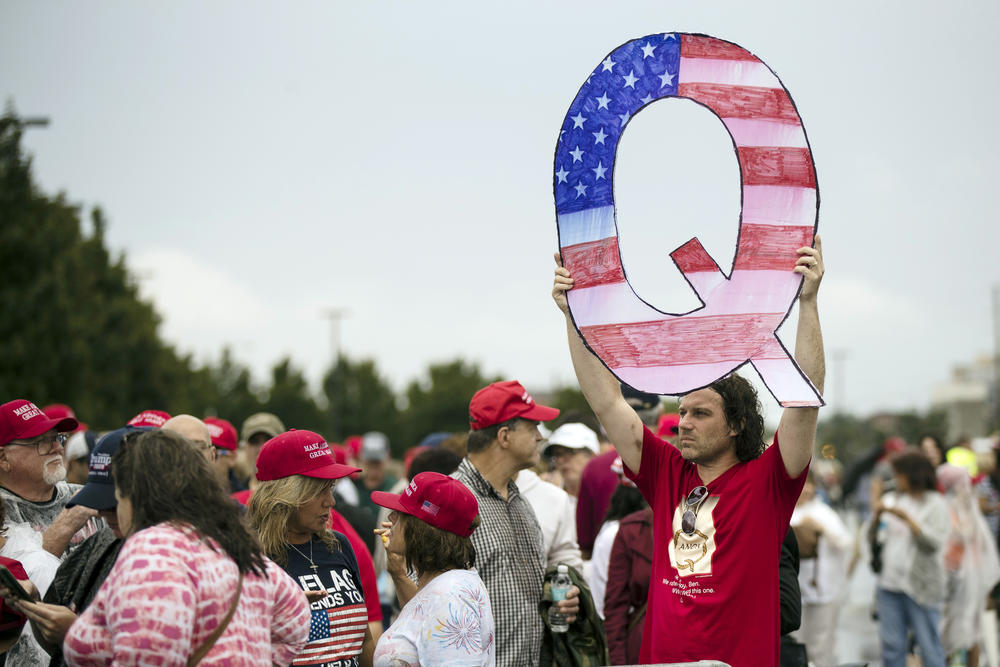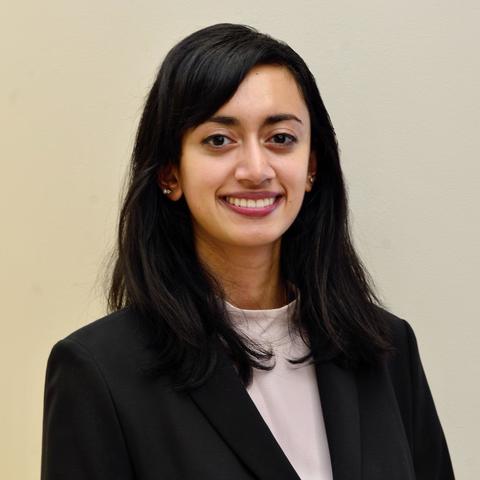
Caption
A man holds up a "Q" sign at a Trump rally in August 2018. While QAnon began as a far-right conspiracy theory forged in a dark corner of the internet, it is now creeping into the mainstream political arena.
Credit: AP Photo/Matt Rourke



